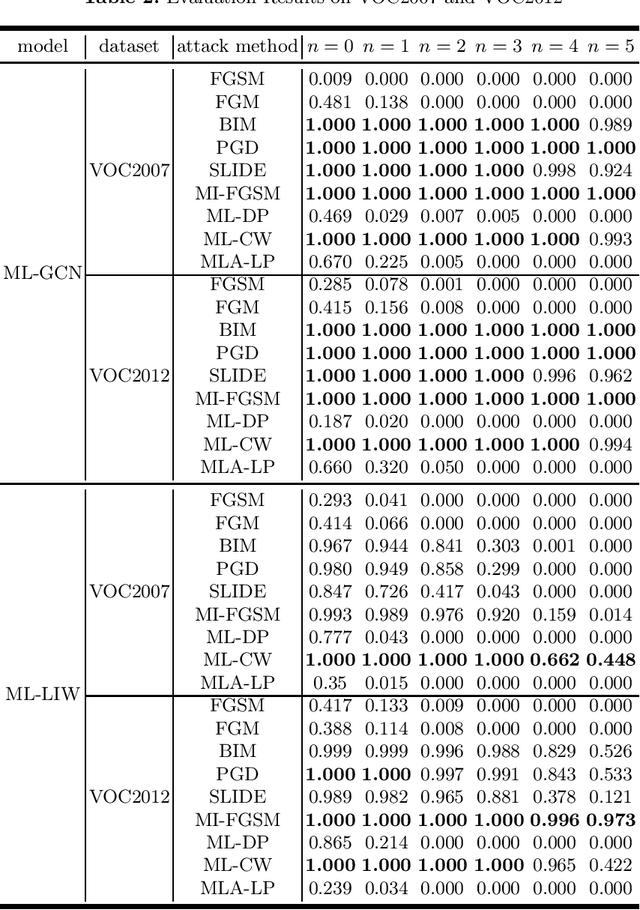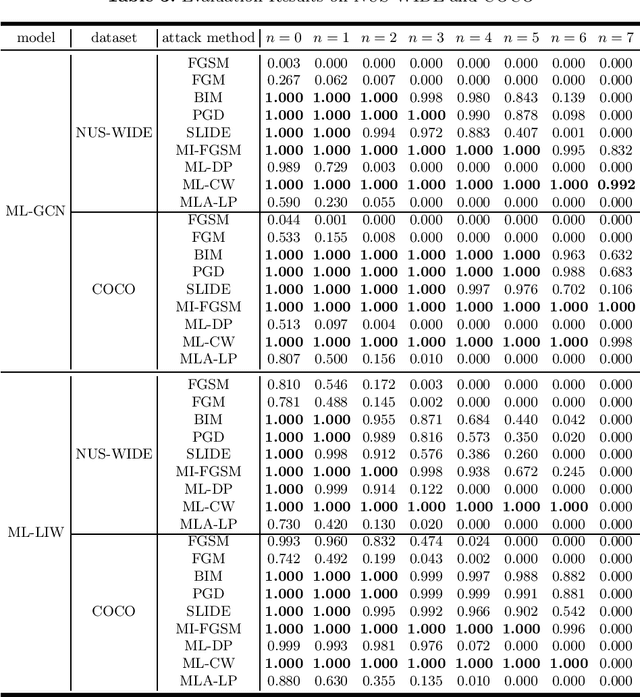Muhammad Luqman Naseem
Showing Many Labels in Multi-label Classification Models: An Empirical Study of Adversarial Examples
Sep 26, 2024


Abstract:With the rapid development of Deep Neural Networks (DNNs), they have been applied in numerous fields. However, research indicates that DNNs are susceptible to adversarial examples, and this is equally true in the multi-label domain. To further investigate multi-label adversarial examples, we introduce a novel type of attacks, termed "Showing Many Labels". The objective of this attack is to maximize the number of labels included in the classifier's prediction results. In our experiments, we select nine attack algorithms and evaluate their performance under "Showing Many Labels". Eight of the attack algorithms were adapted from the multi-class environment to the multi-label environment, while the remaining one was specifically designed for the multi-label environment. We choose ML-LIW and ML-GCN as target models and train them on four popular multi-label datasets: VOC2007, VOC2012, NUS-WIDE, and COCO. We record the success rate of each algorithm when it shows the expected number of labels in eight different scenarios. Experimental results indicate that under the "Showing Many Labels", iterative attacks perform significantly better than one-step attacks. Moreover, it is possible to show all labels in the dataset.
 Add to Chrome
Add to Chrome Add to Firefox
Add to Firefox Add to Edge
Add to Edge